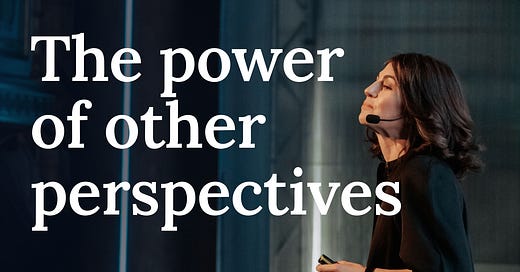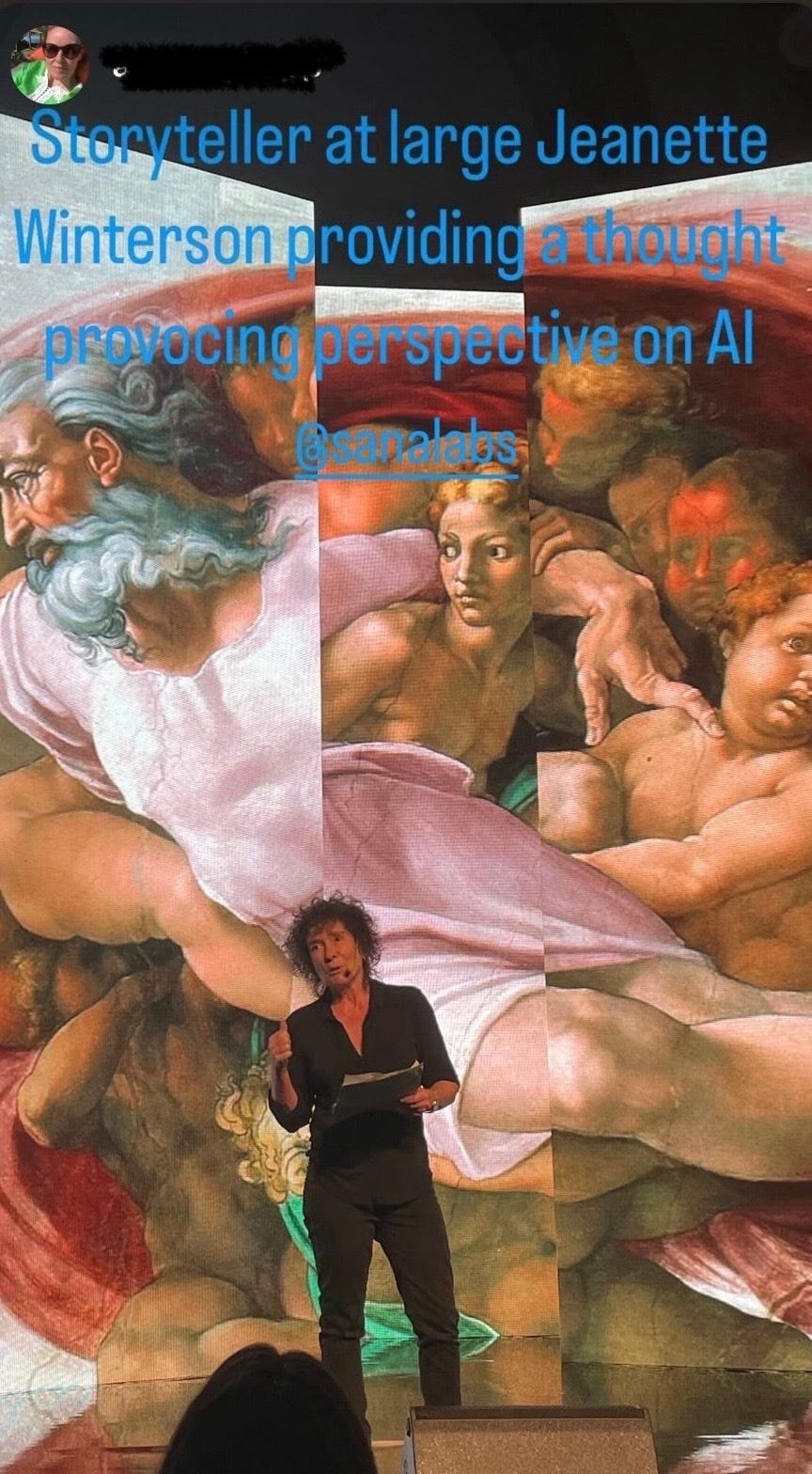Hello!
I’m writing this from a tired, happy place. Last Wednesday, my team reached another milestone: we hosted Sana’s second annual AI Summit in Stockholm. And it was a big success.
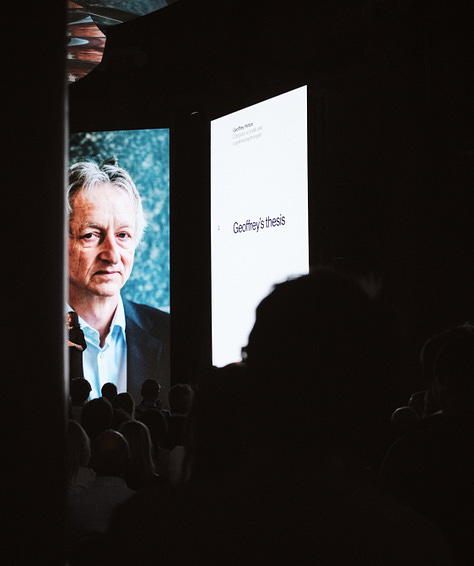

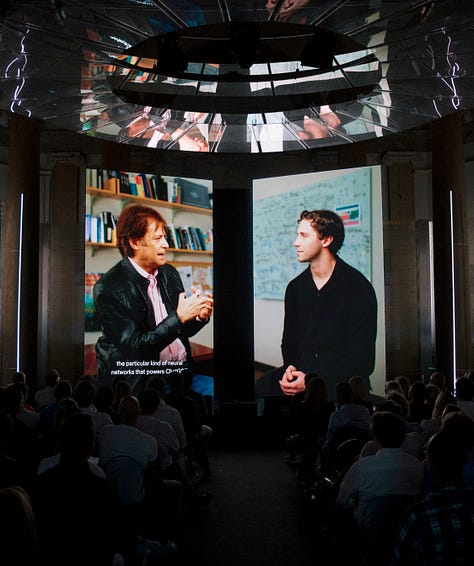
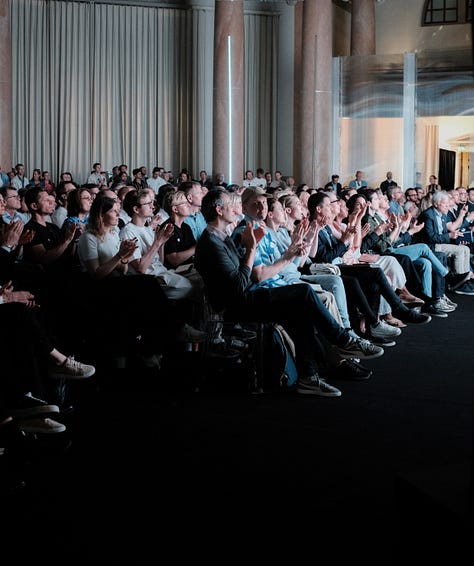
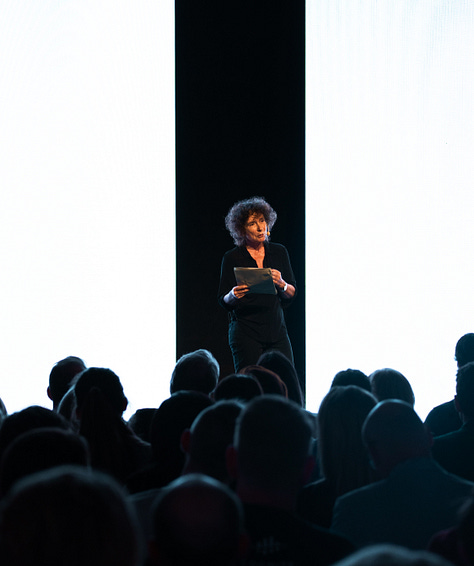
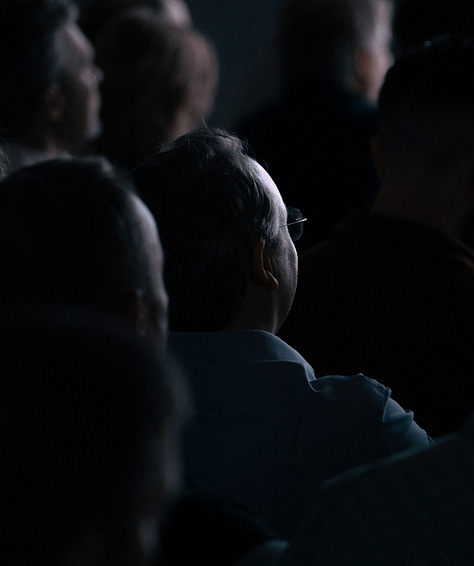
The Summit’s purpose is to explore the impact of AI across disciplines. We host it for around 500 guests at Stockholm’s Eric Ericsonhallen, a beautiful 19th-century (now desacrilised) church modelled on the Pantheon in Rome—creating the perfect contrast between past and future.
End-to-end, the project takes us around 5 months. This year, we wanted to highlight more real-life examples of how AI is being used to solve deep societal problems while still allowing sufficient space for philosophical reflection. We landed on this program:
On the state of AI — Renowned technology analyst Benedict Evans unpacked the past year’s AI trends.
Geoffrey Hinton’s thesis — The world’s most influential computer and cognitive scientist talked about everything from his life as a young researcher and mentoring OpenAI’s former Chief Scientist Ilya Sutskever to his beliefs on AI’s ability to be creative and experience emotions.
On building Sana AI — Sana’s founder and CEO Joel Hellermark shared the biggest lessons from, and plans for, making our AI knowledge assistant universally accessible.
On reimagining medicine Computer scientist and Coursera co-founder Daphne Koller explained how her latest company insitro is using machine learning and data to reimagine medicine and accelerate drug discovery.
Max Tegmark’s thesis — The physicist, AI researcher and NYT-bestselling author who spearheaded last year’s Open Letter on pausing giant AI experiments discussed his views on AI safety, consciousness, meaning, and more.
On cancer treatment and diagnosis — MIT professor Regina Barzilay discussed her latest research into applying machine learning to treat and cure lung cancer more effectively. A brilliant computer scientist, Regina was inspired to focus on AI for healthcare after surviving breast cancer in 2014.
On the future of science and knowledge — A fantastic fireside between two highly influential computer scientists Max Jaderberg and Tuomas Sandholm. Max leads the research and development of AlphaFold 3, the revolutionary new AI model capable of predicting the structure and interaction of all life’s molecules. Tuomas is a prolific professor and entrepreneur best-known for building Libratus, the first and only AI to beat top humans at poker.
On the UI for AGI — Nothing’s founder Carl Pei, Spotify’s Co-President Gustav Söderström, and The Browser Company’s CEO Josh Miller explored how we’ll interact with software and hardware once we reach artificial general intelligence.
On alternative intelligence — Bestselling author Jeanette Winterson delivered a beautiful keynote on why AI might just be the making of humanity.
Jeanette’s appearance was a personal highlight for me. I’ve admired her writing for a long time; some of you might even remember the odd reference or two from past posts.
Jeanette has a longstanding interest in technology and AI. Her essay collection 12 Bytes: how artificial intelligence will change the way we live and love has been a critical source of reflection and inspiration as I’ve tried to navigate my way through the AI sector as a non-technical person.
Inviting Jeanette to speak was risky but right. Novelists aren’t the obvious choice for a tech conference, and Jeanette even told us she was surprised that we’d invited her. But that’s why it was so important she was there—to burst the science/engineering bubble and offer a different way in. And boy did she deliver. She concluded the Summit with a 20-minute keynote that sparked joy, laughter, and tears.
Interdisciplinary thinking matters more than ever. If you’re subscribed to Pass It On, hopefully you believe that too. Let’s keep fighting for it together.
Thanks so much for reading,
Lauren

